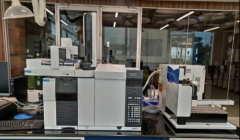Scientists worldwide have started employing wastewater analysis as an efficient and cost-effective approach for assessing the dynamics of the virus in a population. Several scientific methods are being developed to rapidly decode the message carried by sewage

CryptoRelief, an initiative started by Sandeep Nailwal has granted US $ 1 million to establish a wastewater-based epidemiology research facility at IIT Madras.
The facility will act as an intelligence unit to track and prevent a virus outbreak in its early stages. This grant would help in advanced research and getting a foresight into the ever-evolving virus patterns whilst also giving us a chance to better prepare ourselves.
According to Sandeep Nailwal, Founder, CryptoRelief, “We intend to help the public, policymakers, practitioners and public health officials combat the ongoing Covid 19 pandemic through wastewater analysis.”
The fund has successfully been funding several healthcare-related activities in the country.
International Centre for Clean Water (ICCW), a non-profit centre created by IIT Madras and housed at the IIT Madras Research Park will be establishing the facility. “Ensuring clean water for people needs a detailed understanding of wastewater” Professor Pradeep, professor in charge of ICCW, a Padma Shri awardee said. The ICCW team will work on building a hydro-informatics platform for the city with appropriate modelling tools to give spatiotemporal information of the data derived from WBE studies.
ICCW has been developing state-of-the-art technologies for affordable clean water. Creating a reliable platform for periodic analysis of wastewater will ensure better water security for the community.
IITM and ICCW envision providing practical solutions to build a healthier country through WBE.
With the worldwide outbreak of Covid 19 disease in 2019, it has been challenging to understand its transmission. This calls for a better understanding of the population's health to predict and control the disease spread, be it a pandemic or an endemic.
Wastewater carries molecules that correlate to what people consume and how their health is changing. At an individual or household level, toilet waste can tell a lot about the user. For a city, the sewage gives information about the health of its inhabitants. Wastewater-based epidemiology (WBE) is a way to understand this and may be considered as mining of chemical information from sewage.
Clinical data on the virus infection from a large population relies on extensive sample collection and is commonly restricted to symptom reporting. In a densely populated city, it is harder to monitor and control the disease spread with clinical data alone.
Virus-infected people shed many virus particles into the sewage even before the onset of symptoms. Therefore, a spike in the number of affected individuals and new virus variants can be traced much earlier than the clinical reports. Scientists worldwide have started employing wastewater analysis as an efficient and cost-effective approach for assessing the dynamics of the virus in a population. Several scientific methods are being developed to rapidly decode the message carried by sewage.
Apart from SARS Cov-2, several other pathogens prevailing in a population can be detected through the analysis of wastewater. Techniques for analysis include polymerase-chain-reaction (PCR) and mass spectrometry (MS), combined with data analytics.
In this CryptoRelief supported project, data obtained from various wastewater sources and treatment facilities will be analyzed and made available to the public through dashboards. Gradually, this facility will be extended to other parts of India. New human resources developed in the area will be useful in establishing such facilities across the country.

Subscribe To Our Newsletter & Stay Updated